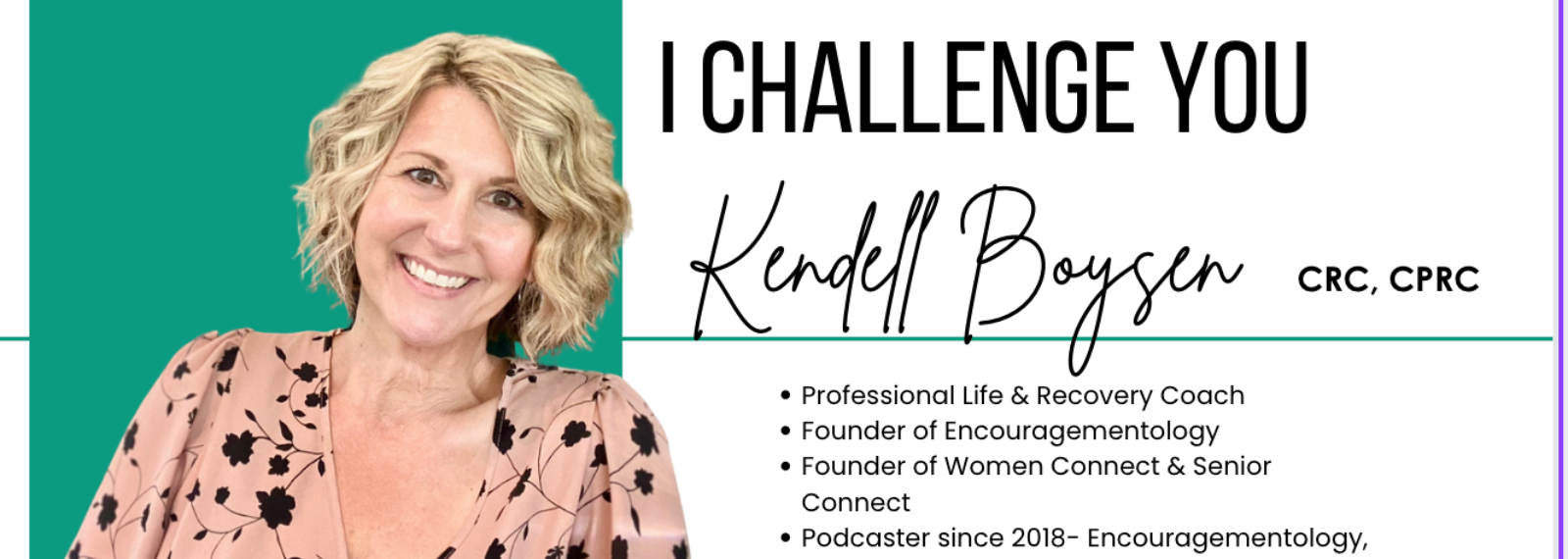Episodes

Thursday Dec 05, 2024
Finding Your Way Back to Peace
Thursday Dec 05, 2024
Thursday Dec 05, 2024
SHOW NOTES:
On this show…we are taking a deeper look at stress in an attempt to find our way back to peace. No matter what your level of stress is, everyone can benefit from a more peaceful existence because life can sometimes feel like an endless juggling act, and let’s be real—most of us are using bowling pins instead of tennis balls. Between the pressure to perform, the nagging feeling of not being good enough, and the constant stress of “adulting,” it’s no wonder so many of us are stuck in a cycle of burnout. But here’s the good news: there’s a way to hit the pause button, reclaim your peace, and rewrite the narrative playing in your head.
In this episode, we’re diving into how to manage stress, tackle the relentless inner critic, and embrace the idea that you’re not just “enough”—you’re extraordinary. We’ll explore why so many of us feel like we’re falling short, unpack the serious toll this mindset takes on our health, and share practical, empowering strategies to help you flip the script. Because let’s face it, you deserve to feel good about yourself—and that starts today. Ready? With peace being the ultimate destination, let’s chart a course offering valuable pitstops along the way.
Maybe you sometimes feel stress but not sure it’s all bad or that you suffer from too much stress. Maybe the word Peace conjures up tie-die an hemp necklaces instead of a tranquil existence. Let’s start with a few definitions to make sure we’re all on the same page:
Stress: a feeling of emotional strain and pressure that occurs when a person perceives an event as taxing or endangering their well-being.
Peace: freedom from disturbance; tranquility.
Ok, simple enough? Hardly.
At Healthline, I found Why Americans Are More Stressed Today Than They Were in the 1990s
Kira M. Newman helps us understand What to Do When You Never Feel Good Enough found on Greater Good
On Therapy in a Nutshell’s YouTube channel, I found, Stress, Anxiety, and Worry
Self-regulation tools can be divided into quick fixes for immediate relief and long-term health practices for sustained well-being.
- Quick Fixes: Excellent for acute stress or when you need fast relief.
- Long-Term Practices: Create a buffer against future stress and support sustained emotional balance.
- Integration: Use quick fixes during high-stress moments while building long-term habits for resilience.
Quick Fixes
These are tools you can use in the moment to calm stress or regain focus. While effective for immediate needs, they don’t address the underlying causes of dysregulation.
Deep Breathing
- Take 4-5 deep breaths, inhaling for a count of 4, holding for 4, and exhaling for 4.
- Quick relaxation of the nervous system.
5-4-3-2-1 Grounding Technique
- Identify 5 things you see, 4 you can touch, 3 you hear, 2 you smell, and 1 you taste.
- Redirects focus and alleviates anxiety.
Progressive Muscle Relaxation
- Tense and release muscle groups from head to toe.
- Relieves physical tension caused by stress.
Short Walk or Movement Break
- A brisk 5-10 minute walk outside or light stretching.
- Boosts mood by releasing endorphins and clearing the mind.
Journaling for 5 Minutes
- Write down your thoughts or worries.
- Provides mental clarity and emotional relief.
Mindful Distraction
- Engage in a quick, enjoyable activity like a puzzle or music.
- Offers temporary relief by shifting attention.
Long-Term Health Practices
These build resilience and create a foundation for improved self-regulation over time.
Mindfulness Meditation
- Commit to 10-20 minutes daily to cultivate present-moment awareness.
- Reduces stress and improves emotional regulation.
Exercise Routine
- Regular aerobic activity like walking, yoga, or cycling 3-5 times a week.
- Strengthens mind-body connection and releases stress-reducing chemicals.
Sleep Hygiene
- Prioritize 7-8 hours of quality sleep with a consistent bedtime routine.
- Regulates mood, energy, and cognitive function.
Healthy Nutrition
- Focus on a balanced diet with whole foods, reducing caffeine and sugar.
- Supports mental clarity and stable energy levels.
Therapeutic Practices
- Engage in regular therapy, counseling, or self-reflection exercises.
- Addresses root causes of stress and emotional dysregulation.
Regular Gratitude Practice
- Write down 3 things you’re grateful for daily.
- Shifts perspective and fosters resilience.
Learning Emotional Regulation Skills
- Techniques like cognitive reframing or dialectical behavior therapy (DBT).
- Provides tools to manage triggers and stress more effectively.
CHALLENGE: Start small. Identify one stressor in your life and address it with a calming technique we discussed, like deep breathing or reframing your thoughts. Then, commit to taking one small step toward asking for support or setting a boundary—because your peace is worth protecting.
I Know YOU Can Do It!


No comments yet. Be the first to say something!